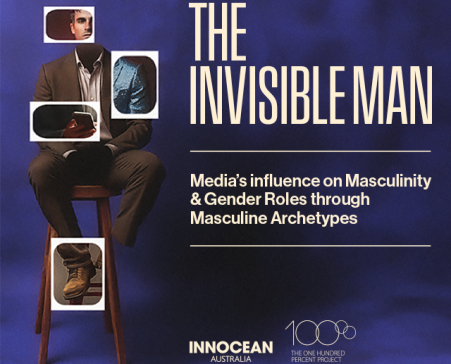Diversity of Thought Blog
Unsettling the Dust: the Aspirations of the 2013 Level the Playing Field Symposium
By Jill Hufnagel
On my way into work this morning, I heard a lyric from Dala’s “Good as Gold” that struck me as a provocative way of thinking about the challenges of making progress on the gender gap: “I won’t let the dust fall on my life.” I thought about where dust falls: on fixed surfaces, in the crevices we miss, over the places we never much get to. There’s something to the phrase “dust settles” that suggests complacency: that act of accepting less than we know we might deserve, aspire to, long for. And with that settling comes a set of blinders.
Last week my nine-year-old son said to me, with wide-eyed wonder, “Can you even believe we’ve never, ever had a female president?” Before I had a chance to respond, he continued: “That’s just so surprising!” His sheer incredulity at what for me feels like par for the course was telling—a demoralizing reminder that I’ve got my own trusty set of blinders. What I hear both in my son’s disbelief and in Dala’s lyrics is also an implicit commitment to growth rather than eyes-averted settling.
If the gap between my son’s astonishment and my own isn’t enough to shift my vision, I needn’t look far to find further unsettling evidence. My childhood friend who has worked for 20+ years in the U.S. Senate earns $76K to her male counterpart’s $116K in the same role. The comment from a veteran press corps reporter regarding Hillary Clinton: “The story is never what she says, as much as we want it to be. The story is always how she looked when she said it;”[i]
The stark reality that in a 2012 study, female raters making hiring decisions “judge [the] mothers to be less likeable than [the] fathers and childless women.”[ii] These are windows into the harsh, complex realities women face both individually and collectively. The pressures are within (in our interior monologues) and without (across the systems we traverse).
As I consider the data at the core of the gender gap—whether in terms of the not quite 77 cents to the male dollar American women earn;[iii] women’s paltry corporate foothold at a current total of 21 women CEOs in Fortune 500 companies;[iv] or the disparities in the male/female contribution to the unpaid work of the home front—I can’t help but wonder where we’ve let dust settle. I mean that “we” both individually and collectively, personally and professionally. Because the dust around this gap is in both in our systems, policies, and organizations and in our own minds, behaviors, and choices.
In her controversial Lean In, Facebook exec Sheryl Sandberg encourages women to stand up, stand out, and lean in professionally[v]. Many suggest that’s easy for her to say. Well-heeled women with nannies and sky-high incomes have freedoms few of the rest of us enjoy. Agreed. That she tends to lean into individual women rather than exerting similar systemic pressure may say something about her own blinders. And yet, if and when we dismiss Sandberg and company’s voices, perhaps we are also undermining the currents of the very conversations we will have to have to make progress on these thicket issues. Of all the ways Sandberg might have invested the currency of her influence, she chose to make it personal. And gendered. Whether or not we share Sandberg’s angle, she has been tremendously successful at energizing a deeply relevant conversation. Our part in advancing this conversation includes learning to talk across factions.
Which brings me to the upcoming The 100% Project/Leadership Victoria’s ‘Level the Playing Field’ Symposium in November. From the outset, symposium organizers asked a central question regarding the dilemma of making tangible progress on narrowing the gender gap: of all that we could do, what should we do? They landed on a gathering: of voices, perspectives, insights, ideas. As adaptive leadership posits, both the problem and the solution are in the people. We are those people, both individually and in the ways we each represent the countless incarnations of ourselves outside the space we will share. What we represent in the systems we’ve come from will manifest in the system we create in our time together. In short: the pressure is on.
In many ways, our goal will be the counter-cultural work of unsettling – unsettling our own beliefs and biases; unsettling the policies and systems that keep us stuck; unsettling our default to surface engagement with one another, all in service to making progress on something we don’t yet know how to move. We will have to come willing to investigate the crevices to which we’ve turned a blind eye, willing to move beyond the surfaces of staid ways of thinking, willing to “get to” different hypotheses, and willing to test those hypotheses with experiments that may not succeed.
We must both change the systems we inhabit and increase our ability to navigate those systems. This is not either/or work. This is and work. To do one without the other is not only naïve but ultimately continues to allow dust to accumulate.
Working beyond our own authority means embracing our agency, rather than deferring to hierarchy. Working across factions means expanding our search for allies and letting go of some of what we’ve previously held dear and engaging with people whose ideas aren’t simply echoes of our own.
Working in service to a shared vision means having the capacity to hold steady when things get uncomfortable and the discipline to connect to our shared, deeper purpose. We will have to move from benign interpretations of the stark, sluggish data to conflictual interpretations of those numbers. We will have to acknowledge the very real threats that come with gender equity and in turn all that our current reality serves. And throughout: there will be losses. There always are. The difference? These losses will be in service to that greater good, rather than to self-preservation.
The idea is that we will leave this day together activated. We will leave with allies, and with concrete experiments to take back to our organizations and to live into ourselves. While this symposium will ask much of us, the alternative asks more: to continue to allow dust to settle on this thicket issue. The temptations NOT to engage in what feels like monumental work are many. And yet, in the space we will share each of us is and represents so many reasons to persevere.
Last month, I attended a lecture by Stephanie Coontz, whose talk was part of a series commemorating the 50th anniversary of the publication of Betty Friedan’s Feminine Mystique at the all-women’s university where I teach. Coontz suggests that to upend the policies and beliefs that have kept us stuck, rather than inadvertently replicating those struggles in the very design of new policies, we have one model to consider. Her call is to develop policies with the working woman in mind, policies that acknowledge that for us all to survive and thrive we must be supported in our ability to navigate the demands of work, home and community. This tri-focal vision serves the good of all: men who would like to be more engaged in fatherhood; communities that need co-ed volunteers; women who seek higher echelon posts. Coontz’s proposition acknowledges a factor key in making progress – we tend to mirror current culture in creating future policies, a tendency that reiterates gender imbalance from one generation to the next. As Coontz suggests, “This model isn’t about reverse sexism but about reversing sexism.” [vi]
On both the front and back ends of the lecture, what I heard across the auditorium – from Coontz, from our university president, and from an undergrad in the audience – was that familiar rhetoric acknowledging “how far we’ve come.” Yes, we have. I feel deep gratitude for those who’ve trampled down our path. At the same time, I wonder about the impact of that rhetoric on our tendency to settle into that backward vista rather than to find a way to continue to trample on. Finding that way forward will mean finding allies, designing experiments, working beyond our authority. If there’s any truth to the belief that dust is made up primarily of dead skin cells, then we’ve all got a lot of skin in this game.
Jill is one of the co-facilitators at the upcoming Level the Playing Field Symposium on November 14.
Jill is Director of the Batten Leadership Institute at Hollins University, where she delivers adaptive leadership programming built on capacity development, productive ambiguity and sound strategy. By design, this model demands that participants grapple with the challenges that emerge in the room – challenges that mirror those throughout our organisations, communities and lives. Whether working with undergrads, consulting clients, or in one on one coaching, her focus remains: keeping one eye trained squarely on the collective work in the moment, and the other on encouraging acts of leadership.
Jill trained at both UVA Darden’s Graduate School of Business and the Harvard Kennedy School of Government. Jill holds a Ph.D. in English and Women’s Studies from the University of South Carolina and an M.A. and Ed.s in community counseling from James Madison University. Jill says that the biggest single perk of living in the Blue Ridge Mountains is hiking out of her front door and up the trails with her husband, daughter, twin boys and a pair of pups.
[i] Herminia Ibarra, Robin Ely, and Deborah Kolb, “Women Rising: The Unseen Barriers,” Harvard Business Review 91, no. 9 (2013): 2-8.
[ii] “Women in the Workplace: A Research Roundup,” Harvard Business Review September 2013: 2-8.
[iii] National Committee on Pay Equity: www.pay-equity.org
[iv] Patricia Sellers, “Fortune 500 Women CEOs Hit a Milestone” CNN Money: November 12, 2012.
[v] Sheryl Sandberg, Lean In: Women, Work, and the Will to Lead (New York, NY: Alfred A. Knopf, 2013).
[vi] Stephanie Koontz, Lecture: Feminist Mystique Lecture Series. Hollins University. September 24, 2013.


